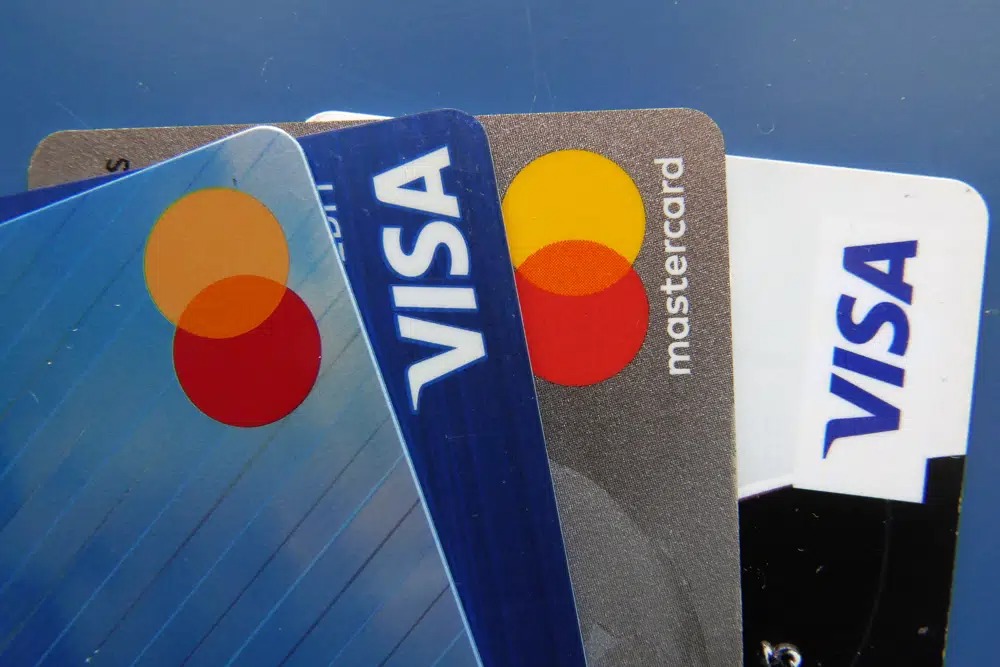The Federal Reserve raised its key rate by another quarter point Wednesday, bringing it to the highest level in 15 years as part of an ongoing effort to ease inflation by making borrowing more expensive.
If you have money to save, you’ll probably earn a bit more interest on it, but the increase will make it even costlier to borrow for homes, autos and other purchases. The interest rate increase comes at a time when credit card debt is at record levels.
Here’s what the increase means for your credit card bill and what you can do if you’re carrying debt:
HOW DOES THE FED DECISION AFFECT CREDIT CARD DEBT?
The Federal Reserve doesn’t directly dictate how much interest you pay on your credit card debt. But the Fed’s rate is the basis for your bank’s “prime rate.” In combination with other factors, such as your credit score, the prime rate helps determine the Annual Percentage Rate, or APR, on your credit card.
The latest increase will likely raise the APR on your credit card 0.25%. So, if you have a 20.4% rate, which is the average according to Bankrate, it might increase to 20.65%.
If you don’t carry a balance from month to month, the APR is less important.
But if, for example, you have a $4,000 credit balance and your interest rate is 20%, if you only make a fixed payment of $110 per month, it would take you a bit under five years to pay off your credit card debt and you would pay approximately $2,200 in interest.
If your APR increases by a percentage point, paying off your balance would take two months longer and cost an additional $215.
HOW DO I FIND OUT THE APR ON MY CREDIT CARD?
Courtney Alev, consumer financial advocate at Credit Karma, said that knowing the Annual Percentage Rate, or APR, on your card is an important first step for anyone looking to get out of credit card debt.
“If you are carrying a balance month to month, that balance just got more expensive,” she said.
To figure out your APR, you can log in to your online banking account, look at your financial statement, or call the number on the back of your credit card, Alev says.
WHAT DO I DO IF MY APR IS HIGH?
After that, both Alev and analyst Greg McBride of Bankrate.com advise signing up for a credit card that offers a zero percent interest or low interest balance transfer promotion. These allow you to transfer your higher interest credit card debt to a low interest credit card, and some offer promotions up to 21 months.
Banks do sometimes charge a flat fee, such as 3% of the balance transferred.
“It doesn’t make sense to pay 20% in interest just to get 2% in cash back,” McBride said. “Put your interest rate first and pursue rewards once you’re debt-free.”
Other debt payoff strategies include taking a low-rate personal loan as a form of consolidation and pursuing a debt management plan offered by a reputable nonprofit credit counseling agency such as Money Management International, he said.
HOW CAN I REDUCE MY CREDIT CARD DEBT?
If your income just covers your necessities, reducing credit card debt can be challenging. Elena Pelayo, educator at How Money Works, a financial literacy organization, recommends that even if you live paycheck to paycheck, you might want to add at least $10 above the minimum payment of your credit card with the highest interest rate.
And if you can afford it, she recommends paying 10% more than the minimum payment per month.
A well-known payment method is the “ debt snowball ” where you pay down your debts from smallest to largest, to build momentum and good habits. Once the smaller debts are paid off and you have built a habit of paying off debt, the money you were used to putting aside every month can then go toward larger debts. NerdWallet offers a calculator to use this method.
Another small way to tackle debt is the Consumer Financial Protection Bureau ’s recommendation to “use cash when it’s under $20” to avoid overspending on your credit card.
(AP)












2 Responses
Live on one important fact when it comes to financial expenses throughout life.
“GET WHAT YOU NEED NOT WHAT YOU WANT”
sure we all need a vacation or a restaurant date night out but there’s no need to go all the way from living in New York city area all the way to Florida or Israel. Your family will have an amazing vacation just 2 hours away in Pennsylvania and your family won’t even realize the difference in greenery Pennsylvania then Florida with so many places to go.
Everyone can use a good date night restaurant outing but to go by yourself just to have a steak dinner is called insane
Be smart and spend wisely in this time of financial economy inflation crises
From a financial adviser
If you pay off the balance every month (instead of paying amazing ribis), the higher interest don’t directly affect you, other than the places you invest you money (saved by living a frugal lifestyle) will pay you higher interest.